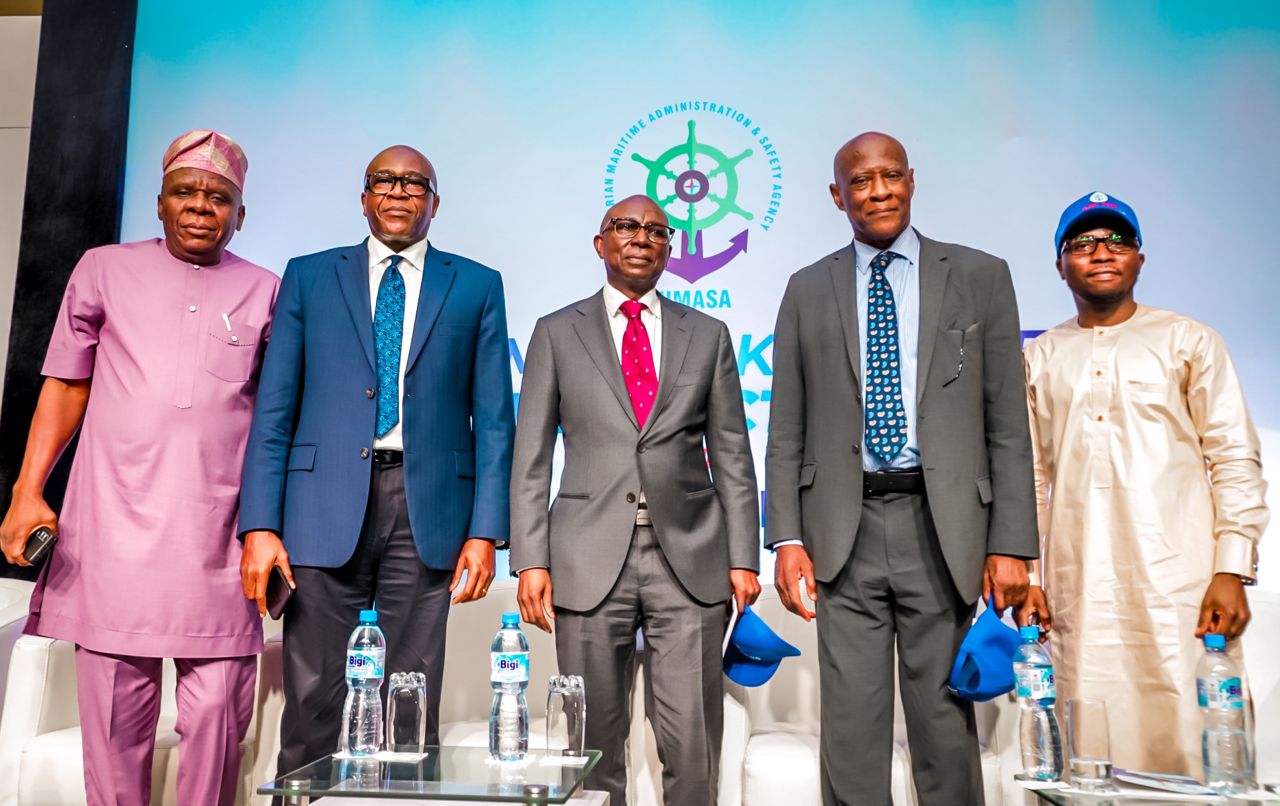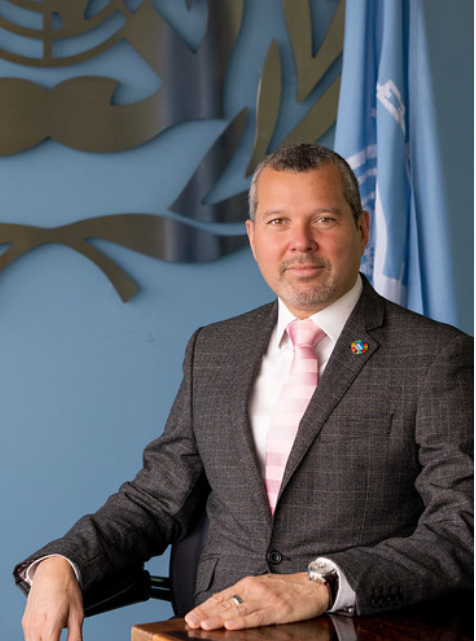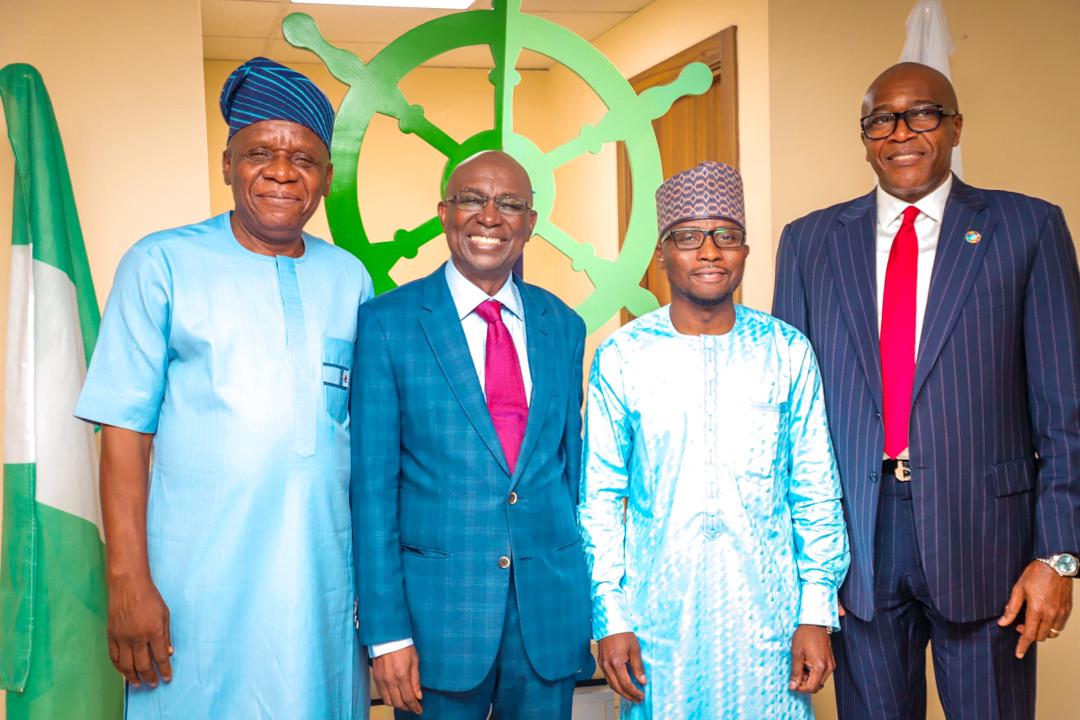Maritime
Cargo clearing delay worsens as Nigerian Customs’ PAAR fails
LAGOS-Eight months into the introduction of Pre-Arrival Assessment Report (PAAR) by the Nigeria Customs Service (NCS) following the takeover of the Destination Inspection regime from the private service providers, importers say the regime has failed since they now face tougher clearing processes at the ports.
They say the introduction of PAAR, which superseded the Risk Assessment Report (RAR) formerly issued by service providers, has failed to ease the clearing bottlenecks experienced by importers.
According to them, the dwell time of cargo now averages 21 days as against minimum of 7-14 days in the last regime, causing increasing demurrage and storage charges. This, they say, has increased cost of doing business at the ports.
Lamenting the incessant querying of PAAR document by Customs officers, Emmanuel Nwabunwanne, a Lagos-based importer, says cargo clearing at the ports has become more difficult in recent times as it now takes an average of one to two weeks to get a final clearing document from Customs.
Nwabunwanne says Customs has failed to keep to the initial promise of transforming and fast-tracking cargo clearance at the ports.
BusinessDay findings reveal that importers see huge difficulties in obtaining PAAR, which is supposed to be issued before the arrival of the consignment. The importers say they sometimes spend an average of five to 14 days after the arrival of the cargo to obtain the document from Customs.
According to them, PAAR was initially designed to be the final cargo clearing document but has now been reduced to an advisory document which can be questioned or rejected by another Customs officer, thereby subjecting the importer to another fresh clearing process.
Boniface Aniebonam, an industry analyst, says non-compliance to the rule guiding PAAR by consignees is the major reason PAAR failed to alleviate the challenges confronting cargo clearance at the port, while dishonesty and under-declaration are the reasons PAAR is not adding value to the clearing process.
Reacting to this, Wale Adeniyi, national public relations officer, NCS, admits that PAAR has become an advisory document due to reoccurring errors from issuing officers.
He, however, also blames the failure on under-declaration of imports by consignees who aim to short-change government.
Another reason PAAR has failed, Adeniyi says, is lack of technical know-how on the part of some officers. He adds that an importer has the right to appeal for adjustment if the cargo is overvalued and an officer also has the right to query PAAR after carrying out physical examination of the cargo.
Manufacturers in Nigeria have also continued to pick holes at the level of capacity gaps existing in the implementation of PAAR. They say this has continued to stall delivery of raw materials to various factories, thereby disrupting production timelines.
“When imported raw materials get stuck at the ports, it results in a stock-out of raw materials, which means that the internal stock level of the manufacturers will decrease, resulting to low production levels,” says Rasheed Adegbero, immediate past acting director-general, Manufacturers Association of Nigeria (MAN), in an interview.
Similarly, manufacturing exporters are worried that the scheme crimps export capacity of their products. According to them, constant delays emanating from the scheme often lead to loss of markets for their products, as customers often have to look for alternatives in other markets rather than continue to wait for made-in-Nigerian goods which take time to arrive.
They also add that the delays result in high demurrage and consequently high production cost, thus making it difficult for locally-made goods to compete effectively in the international market.
“At the end of the day, our operating costs rise owing to the demurrage. There have been cases where such delays resulted in shortage in supplies, which prompted our customers to look for alternatives. I will also emphasise that the tariffs have been high,” a manufacturing exporter, who prefers not to be named, tells BusinessDay.
Stakeholders also say the basic problem with the scheme is capacity gaps in the areas of infrastructure, information and communication technology (ICT) and human capacity, among others, insisting that such is an indication that the NCS is not yet on top of the situation.
“The issue is that the Customs are not on top of the situation. When you have PAAR and you do not have, maybe, infrastructure, human capacity or ICT, it means there are capacity gaps in the implementation process,” says Muda Yusuf, director-general, Lagos Chamber of Commerce and Industry (LCCI), in an interview.
BUSINESSDAY-
Maritime
NIMASA DG, Mobereola Assures Maritime Stakeholders Of Inclusivity

The Director General of the Nigerian Maritime Administration and Safety Agency (NIMASA), Dr. Dayo Mobereola has assured stakeholders in the Nigerian maritime sector of inclusivity, towards the development of the sector.
He made this assertion during an interactive session with maritime stakeholders in Lagos, where he also pointed out that President Bola Ahmed Tinubu through the Federal Ministry of Marine and Blue Economy had ureged stakeholders to partner with the Government in developing the sector.
Dr Mobereola said, “It is important that we develop clear objectives, goals, and strategies to advance the industry and align with the vision of the President of the Federal Republic of Nigeria and the Minister of Marine and Blue Economy.
“While the Agency will continue to play its part in serving the industry, it is important that we all collaborate to achieve a sustainable maritime sector, as all efforts should be inclusive and collective.”
The Director General seized the opportunity to reassure shipowners on the Agency’s commitment to expediting the automation of the ship registry, a move, which would significantly boost shipping development in Nigeria by enhancing efficiency and streamlining processes.
Earlier in his, welcome address, Captain Iheanacho, a former Nigerian Minister of Interior and chairman of the occasion, expressed the industry’s delight at the appointment of Mobereola, whom he described as a seasoned and accomplished maritime professional.
He noted that Mobereola’s extensive experience and expertise will be invaluable in driving the administration and development of the Nigerian maritime industry forward.
He expressed optimism that under the current leadership of the Agency, Nigeria would make significant strides in promoting ship safety, shipping development, maritime security, and environmental sustainability in our waters.
He noted that Mobereola’s dedication to capacity building will undoubtedly position Nigeria as a key player in the global maritime industry.
He added that stakeholders are willing to collaborate with the DG to move the sector forward.
“We expect the DG to be fully aware of the impact of technological developments in the Marine and Blue Economy industry, to guide in the formulation of policies to be developed. We look forward to working together with you to address the challenges ahead and to seize the opportunities that lie before us”, Iheanacho said.
Captain Iheanacho acknowledged the hard work, resilience and determination of past Directors-General and other stakeholders who were present, noting that their commitments contributed to the robust framework from which the Agency and the maritime industry at large are benefiting.
In his presentation titled; Marine and Blue Economy: Navigating to the Promised Land, Dr. Akabogu, a maritime lawyer, proposed various reforms including policy and agenda verification, enhanced data and technology utilization, minimum industry standards, deliberate recruitment of professionals, empowerment protocols, development of standard shipping development courses, and accountability measures for NIMASA and the industry as a whole. He emphasized the need for routine meetings based on clear identifiable milestones to drive accountability and progress for the sector.
On her part, Princess Vicky Haastrup, the President of the Seaport Terminal Operators Association of Nigeria (STOAN), emphasized the critical importance of dockworkers in the industry. “Where there are no dockworkers, there are no ships”, she said. Therefore, the training of dockworkers is very critical.
Comrade Adewale Adeyanju, the President General of the Nigerian Maritime Workers Union (MWUN), who supported Haastrup’s position, emphasized the importance of continually training dockworkers and ensuring a decent work agenda, in line with the Maritime Labour Convention (MLC) 2006.
Alhaji Aminu Umar, who spoke on behalf of the Ship Owners Association of Nigeria, emphasized the need for further discussions and interactions regarding the International advancements in the maritime industry. He urged the Director-General to consider the independence of the Ship Registry as observed in other maritime countries.
The various women’s associations in the industry; WISTA, WIMOWCA, WILAT, who were represented by Mrs. Tosan Emore-Edodo advocated for increased participation of women in the industry and called for support in promoting advocacy efforts.
Past Directors General of NIMASA who attended the event; Dr. Ade Dosunmu, Architect Ferdinand Agu, Barrister Temisan Omatseye; as well as former Board Chairman of NIMASA, Tijjani Ramalan, all pledged their support for the current administration.
The Flag Officer Commanding (FOC) Western Naval Command, Rear Admiral Mustapha Hassan, was also present at the event, which had representation from the Nigerian Maritime Law Association (NMLA), Association of Master Mariners, Ship Building and Ship Repair Association, among others.
Maritime
IMO Secretary General Congratulates NIMASA DG, Assures Support

The Secretary General of the International Maritime Organisation (IMO), Arsenio Dominguez has congratulated the Director General of the Nigerian Maritime Administration and Safety Agency (NIMASA), Dr. Dayo Mobereola on his appointment by President Bola Ahmed Tinubu, GCFR.
This was contained in a conveyance letter he personally signed, in which he acknowledged the strides of the Agency in building a robust maritime sector in Nigeria.
According to Dominguez, the IMO commends the significant effort, initiatives, and investment that Nigeria has made in strengthening its maritime institutions.
In the words of Dominguez, “the focus on strengthening maritime law enforcement and security architecture has been welcomed by seafarers and flag States. The Deep Blue project and the C4i Centre as well as maritime piracy laws under the SPOMO Act are just some of the many investments that have set a new gold standard in the region in maritime security capacity building.
“IMO has long supported the regional role of the Yaoundé Code of Conduct and its Member States in strengthening maritime security and law enforcement. In this respect, we have been greatly encouraged with the continuation of this regional ownership with the formation and work of the Gulf of Guinea Maritime Collaboration Forum and Shared Awareness and De-confliction (GoG-MCF/SHADE) in 2021”.
He commended the Agency’s partnership with the various regional bodies, and expressed readiness of the IMO to work with Nigeria and other member states on many maritime issues with the aim of jointly tackling these issues.
“NIMASA’s partnership with the Interregional Coordination Centre (ICC) and the collaboration with the shipping industry, navies and the Yaoundé architecture has been instrumental in suppressing the threat of piracy to merchant vessels and seafarers in line with UN Security Council resolution 2634 (2022) on piracy and armed robbery in the Gulf of Guinea and IMO Assembly resolution A.1159 (32).
“I look forward to working with you and your colleagues on many of the maritime issues that we are jointly tackling and hope to welcome you in person at the IMO,” he added.
Maritime
New NIMASA DG Promises Purpose-Driven Organisation, Effective Communication

The newly appointed Director General of the Nigerian Maritime Administration and Safety Agency (NIMASA), Dr. Dayo Mobereola says the Agency’s Management under his leadership will build a purpose driven organisation.
He also promised prioritising effective communication at all levels to enhance innovation, collaboration and synergy.
Biztellers reports that he made the assertion in his maiden address on his assumption of duty, where he also noted that the Agency under his leadership would prioritize safety, security, efficiency, environmental sustainability amongst others.
He said, “We must strive to foster innovation and excellence in everything we do. The maritime industry is constantly evolving, driven by technological advancements, changing market dynamics, and evolving regulatory frameworks.
“As leaders in the sector, we must embrace innovation, adapt change, and continuously seek ways to enhance the efficiency, competitiveness, and resilience of our maritime operations.
“I do not doubt that every individual within our organization has the potential to achieve greatness; we will therefore, ensure that we build a purpose-driven organisation by investing in our staff, processes, and the entire system to achieve our mandate. I aim to foster an environment of innovation, collaboration and synergy, creating an atmosphere that encourages the development of our employees’ skills, talents, and creativity.”
He also used the opportunity to express gratitude to the President of the Federal Republic of Nigeria, Asiwaju Bola Ahmed Tinubu, for entrusting him with the responsibility of steering the affairs of the Agency.
“I extend my heartfelt gratitude to His Excellency, the President of the Federal Republic of Nigeria for entrusting me with this crucial responsibility.
“I am highly aware of the immense trust and confidence the President placed in me. It is with great enthusiasm and a sense of purpose that I step into this position, fully committed to steering our organisation toward greater heights, while upholding the highest standards of integrity, diligence, and service to our nation”, he said.
He thanked the Honourable Minister of Marine and Blue Economy, Adegboyega Oyetola, CON, for his guidance throughout the appointment process, and expressed readiness to work with the Minister in achieving the objectives of the Ministry for the sector.
Earlier, the Agency’s Executive Director, Finance and Administration, Chudi Offodile who led other Management staff to receive the DG noted that the entire Management and staff of the Agency were elated to welcome him to the Agency, while also pledging the cooperation of the staff for the success of the Agency.
Recall that on March 11, 2024, President Bola Tinubu approved the appointment of Dr. Dayo Mobereola to serve as the DG of the NIMASA for a renewable term of four years.
Dr. Mobereola holds a Ph. D and an M. Sc in Transport Economics from the University of Wales, United Kingdom.
He is a fellow of the Chartered Institute of Transport, England, and a fellow of the same institute in Nigeria.
He was the Managing Director of Lagos Metropolitan Area Transport Authority (LAMATA) from 2003 to 2015 and the Commissioner for Transportation in Lagos State from 2015 to 2016.








